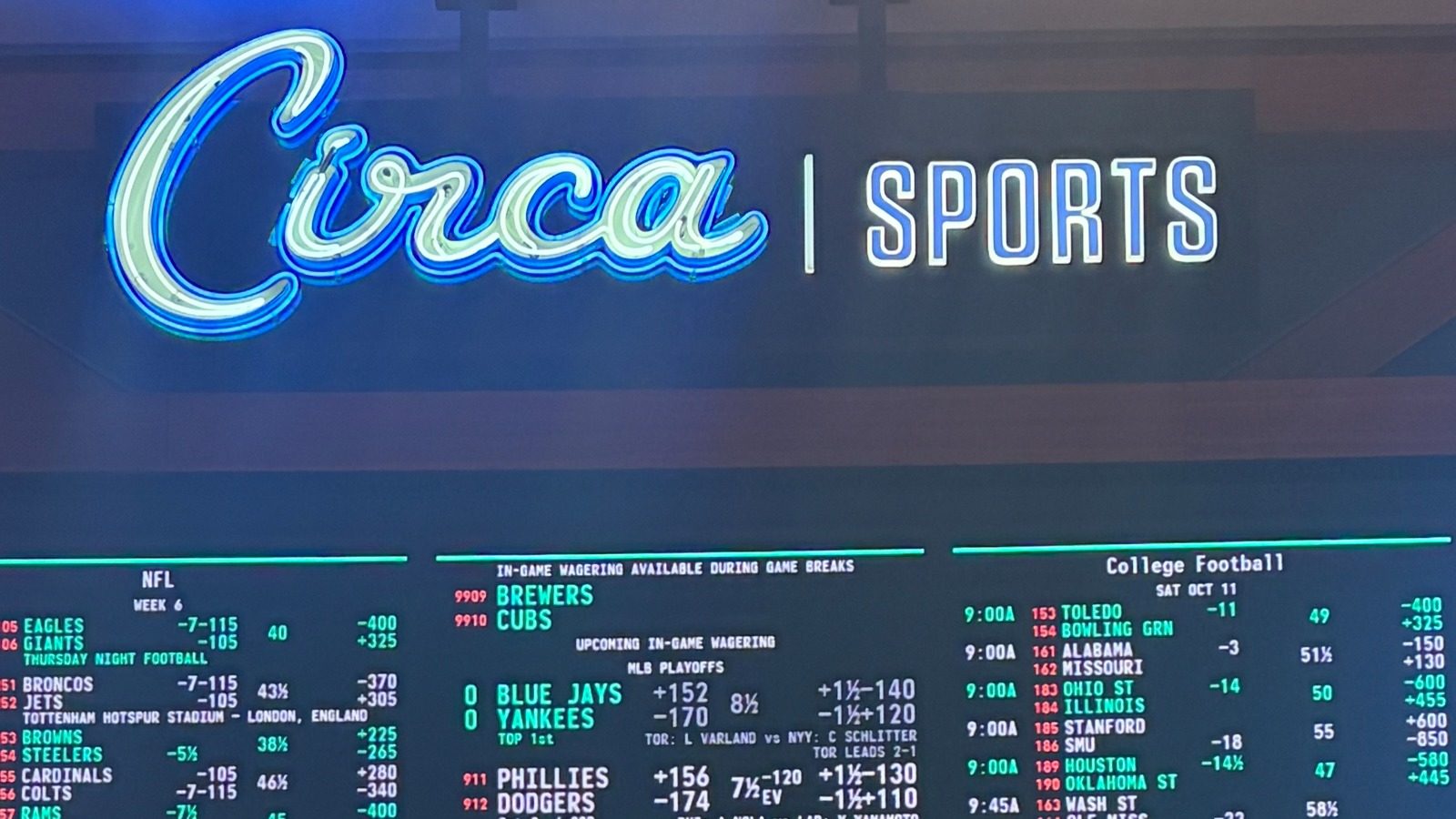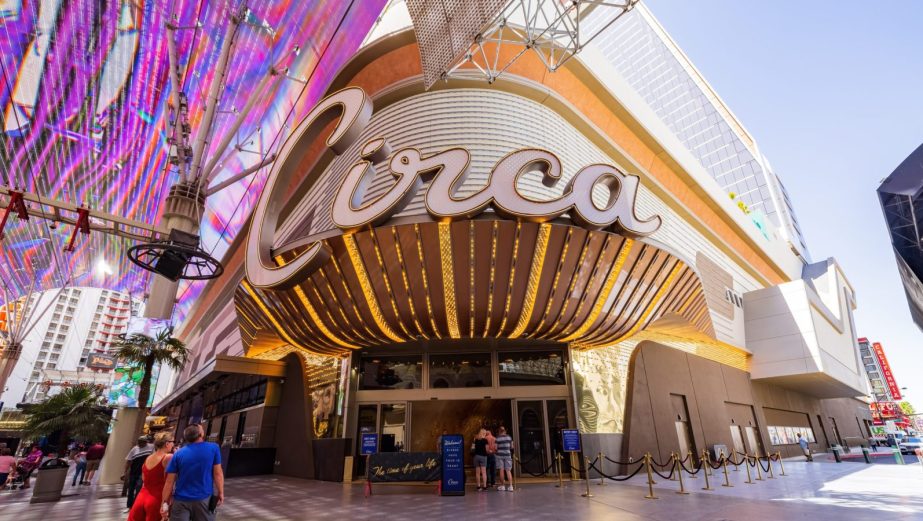Standing before the Missouri Gaming Commission (MGC) Aug. 13, Derek Stevens looked and sounded like an aw-shucks, regular guy.
He talked about how “businesses, farmers, attorneys” would bet on his platform and that he wouldn’t limit how much they could bet. Then he told the commission that his company’s average hold of 3.5% is well below the industry norm and that Circa “can’t compete” with the kind of tax revenue that major, national sportsbooks generate.
He was sure his not-so-savvy, straight-shooting presentation would result in not being awarded a stand-alone digital license.
But two days later, the MGC gave Circa Sports and DraftKings the two coveted licenses. Those licensees don’t have to pay a market access fee to a retail sports betting partner, an added cost that potentially would have kept Circa out of Missouri for good.
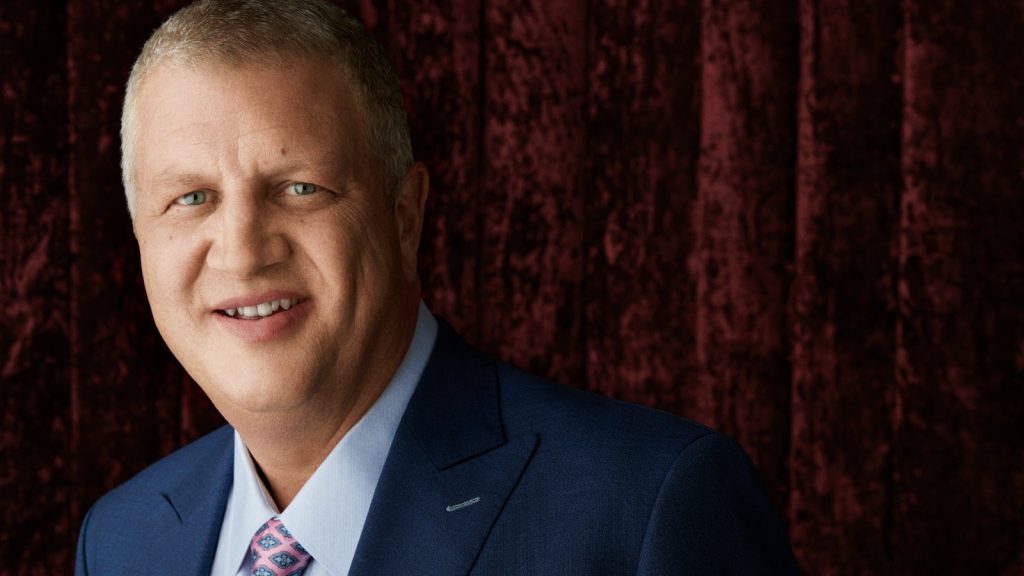
Instead, Stevens’ independently owned wagering platform will be one of 10 licensed to go live Dec. 1, when Missouri becomes the only state to launch legal sports betting this year. Circa won’t have a retail location. What it will have is the signature Circa bet menu, no limits, a traveling wallet, and a pathway for the state’s biggest bettors to stay in state. That means tax revenue derived from whales — the colloquial term for high-limit, high-volume bettors — will also stay in Missouri.
Back in Las Vegas in his office atop Circa Casino, housed in a no-nonsense tan-colored building with a glass tower at the corner of Main and Fremont streets in downtown Las Vegas, Stevens is what he appeared to be during the Missouri hearing. Well, almost. On this day, he is wearing a suit that has lavender in the plaid versus the much more staid dark sportscoat and tie he wore in Jefferson City. The video from the Aug. 13 meeting wasn’t able to capture his presence — a warm, welcoming face atop a defensive lineman’s body.
Indeed, Stevens was a two-sport athlete in high school in Gross Pointe, Michigan, but his first love is business.
Stevens loves sports, too
Upon launch, Missouri will be the sixth state where the Circa platform is available. With Circa already live in Colorado, Illinois, Iowa, Kentucky, and Nevada, Stevens carefully chose low-tax wagering states with a “low barrier to entry.” (When Circa launched in Illinois, the state had a 15% tax rate, the highest of all states it has entered. It is now up to 20% with a per-wager tax, as well.)
The tax rate in Missouri will be 10%, and the licensing fee was $500,000.
Circa’s product is wholly different from the biggest sportsbooks operating in the U.S., and Stevens is a wholly different owner. He says that among leaders of sports betting companies, he may be the only one truly passionate about sports. He’ll watch any kind of game any time, anywhere, and carries a love of “M Go Blue,” Lions, Pistons, Red Wings, and Tigers from his childhood and young adulthood in Michigan. He sealed his love of the Michigan Wolverines as an undergraduate there before earning an MBA at Wayne State University in Detroit.
Since moving to Las Vegas, Stevens has embraced the Golden Knights, whom Circa sponsors, and the Raiders. And he, for one, can’t wait for the Athletics to take up residence at their new Las Vegas Strip ballpark in 2028.
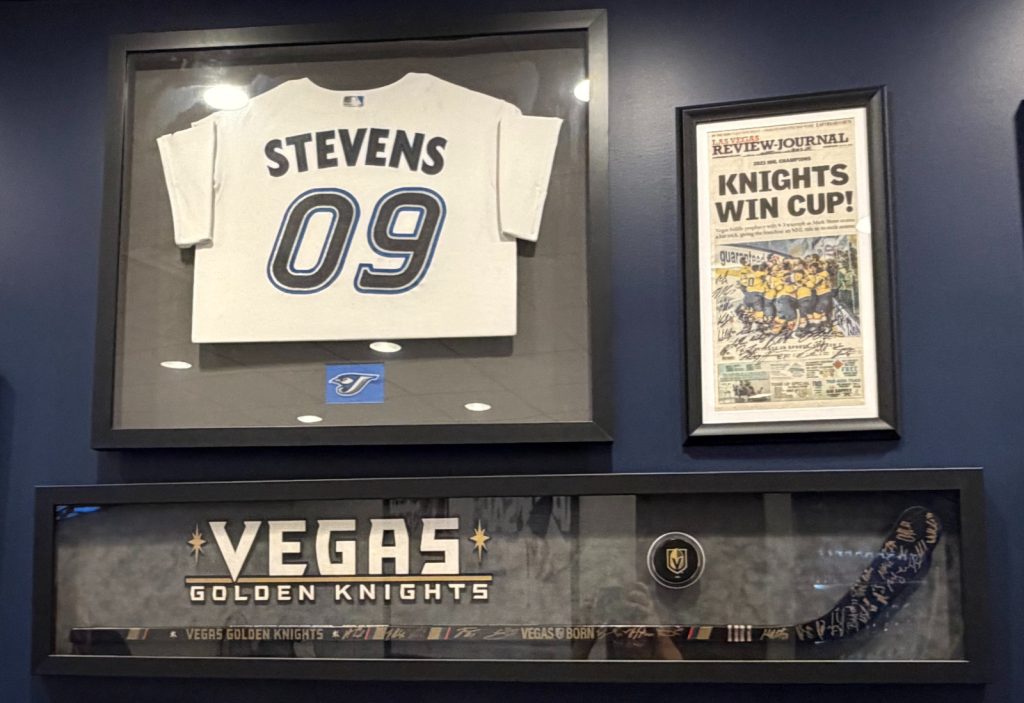
The Golden Knights “had the ability to bind a community that I think was already strong,” he said. “It created an entire city that rooted on this team.
“So when the team came, it just took over the soul of the community.”
The NHL was the first league to place a professional sports team in Las Vegas. For decades, owners stayed away from the gambling capital of the world. But a year before the Professional and Amateur Sports Protection Act was overturned, the NHL in 2017 announced it would put a team there. In 2018, the Golden Knights made it to the Stanley Cup playoffs in their first season, galvanizing a city that was hungering for pro sports. The Raiders followed in 2020, and the Athletics have already left Oakland and are playing in Sacramento ahead of their move.
“When [the Golden Knights] came, it just took over the consciousness of this community,” Stevens said. “And it also quelled the fears of all these doubters about whether it was OK or that a sports team would ever work in the desert.”
Stevens says his passion for sports — for the actual drama of a game — is what sets him and his company apart. That passion is also a foundational principle for Circa, home of the biggest retail sportsbook in the world, as well as the Stadium Swim venue, where customers can watch a game while soaking in a heated rooftop pool.
‘They all run data’
During the annual Global Gaming Expo in Las Vegas every October, top executives from sports betting companies — operators and suppliers — assemble for dinner.
“We all get together and what would be the one thing that’s different for me than all of them?” Stevens said. “I’m the only guy who actually cares about sports. No one cares about sports. They all run data.”
He says the biggest platforms are “built for the masses” and are more about entertainment than actual sports betting. And when it comes to digital offerings, he compared the tech companies in the sports betting business, like DraftKings or Fanatics or FanDuel, to slot machines.
“They never lose,” he said. “For us, we actually lose on a given day during a 30-day month — you know, the house will lose for us 10-12 days because we have so much higher volatility. If we get a 16 percent margin or if we never took more than a $100 bet, yeah, you can never lose. It’s similar to my business here in the casino.
“In table games, we’ll lose 8-10 days a month, and slots will lose maybe once out of 365 days. I really don’t pay attention to slots that much. Why would you? You’re printing money. And that’s the exact same thing, like for those guys. Why would they look at sports? They make a score every single night.”
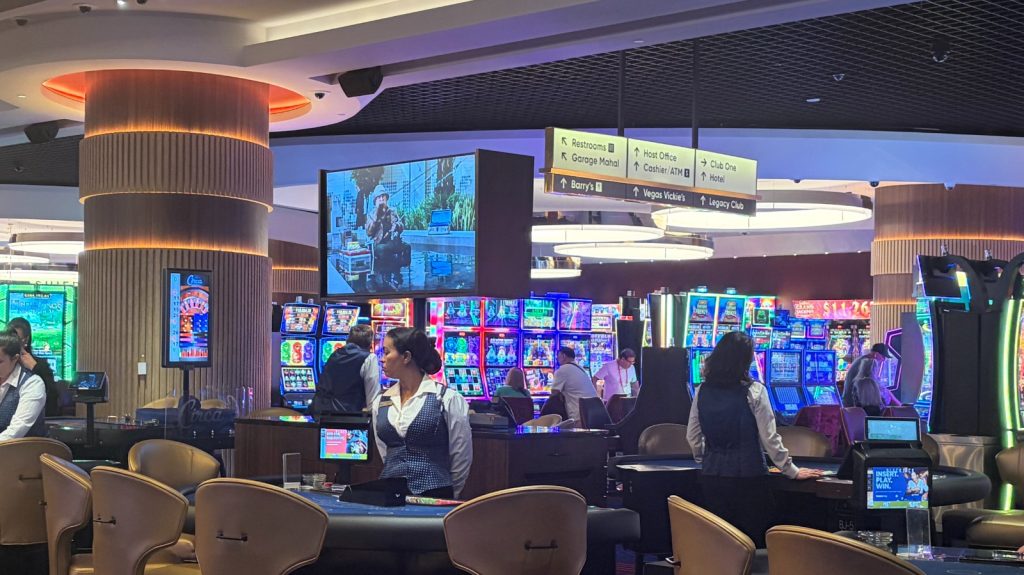
The average hold for digital sports betting companies in the U.S. is approaching 10%, more than double Circa’s hold goal. The company’s low hold and its willingness to embrace the most experienced sports bettors is something Stevens is proud of. He also strives to find a way to make his customers useful — after all, there are far more sharps out there studying a game than the number of people Stevens has in-house.
“It’s unrealistic for me to think that I could take a Chris Bennett or Jeff Benson and their band of 40 brilliant people working for them and think that those 40 people are going to outsmart potentially hundreds, if not thousands, of people that are looking at every little nuance, listening to every little radio broadcast,” he said. Bennett is Circa’s director of sportsbook, and Benson is the director of operations for the hotel and Circa Sports.
“The market is going to be better than any sportsbook,” Stevens said. “They’re gonna know. So I would rather embrace the sharp guys — they’re going to get information. Let’s utilize them. Why would I want to limit a guy who we think has some of the best information sources out there?
“I’d rather utilize that guy, let him make a bet, let him win a bet, if that’s good information. And we’ll move the number off. … And then that’s how I think Circa Sports has really become the leader in the number. When we move a number, the market moves.”
Loving Las Vegas
Seeing opportunity in a different way than others do isn’t new for Stevens. Before running casinos and digital sports betting platforms, he founded a manufacturing plant in Michigan. He’s still involved in it as well as the investment portfolio that initially prompted the move to Nevada. Partnered with his brother in many of his business ventures, Stevens said that in the early 2000s, the pair wanted to diversify, and Stevens set a goal of moving their investment portfolio to a state with no income tax.
States like Florida, Oregon, and Texas are often at the top of a no-income-tax discussion, but Nevada is among the nine U.S. states that don’t tax income. Stevens said he didn’t want to move to Alaska and was “afraid to move to Texas because I do not know anything about oil or natural gas, so I didn’t want to go there.”
But it seems that Derek Stevens was always headed for Las Vegas. He’d visited plenty, he likes to gamble, and in the biggest picture is a big personality who clearly thrives on a big stage. Not to mention, he embraces Las Vegas with unbridled enthusiasm.
“I love Las Vegas,” he said. “I love everything about Las Vegas. I love the hospitality. I love math. I love numbers. I love sports. I love sports betting.” He also loves the weather, the tourists, and the wacky way that people are when they visit Las Vegas.
Stevens spent his first 30 years in Detroit where it was “cloudy at Thanksgiving and I didn’t get to see the sunshine until the Tigers played.”

“I think sunshine changes people,” Stevens said. “I think the psyche, the mentality, and because there are so many tourists here, I find this different. … Vegas is different, because you got so many tourists here every single day that are coming in that are excited. They’re seeing sun. You see these visitors from Chicago or Detroit or Toronto in December that are fired up because they’re gonna put shorts on. You know, they haven’t seen the sun shine since September.
“There’s this adult freedom here, where you might have somebody, you know, that doesn’t eat meat and they order a prime rib when they come out here. You know there are people who go over the top, they might not drink, but they have a few drinks. They might not smoke, but they have a cigar. There’s just an excitement … with the sensory overload on lights and music and food and alcohol, and you can totally forget about your hometown, your mainstream.”
And loving downtown Las Vegas
Stevens’ goal was to create a place that would lure those tourists who have forgotten about their hometown and are indulging. Truth be told, he doesn’t care if you stay at his hotel, though Circa has 777 luxury rooms and a variety of dining options in a prime downtown location.
The food and drink options at Circa run the gamut from fine dining to fast casual, but like the giant sportsbook and Stadium Swim, some offer an experience customers can’t get elsewhere. There is the Mega Bar, with 165 feet of granite titanium and 120 beer choices; the Circa Bar, which is the longest on Fremont Street; and the rooftop Legacy Club, a luxury bar with a stunning view of the Strip.
For Stevens, it’s all about the details — and he’s had a say in just about all of them, from where and how the sound comes from the TVs at Stadium Swim to how clean the bathrooms are. But it ultimately comes back to sports.
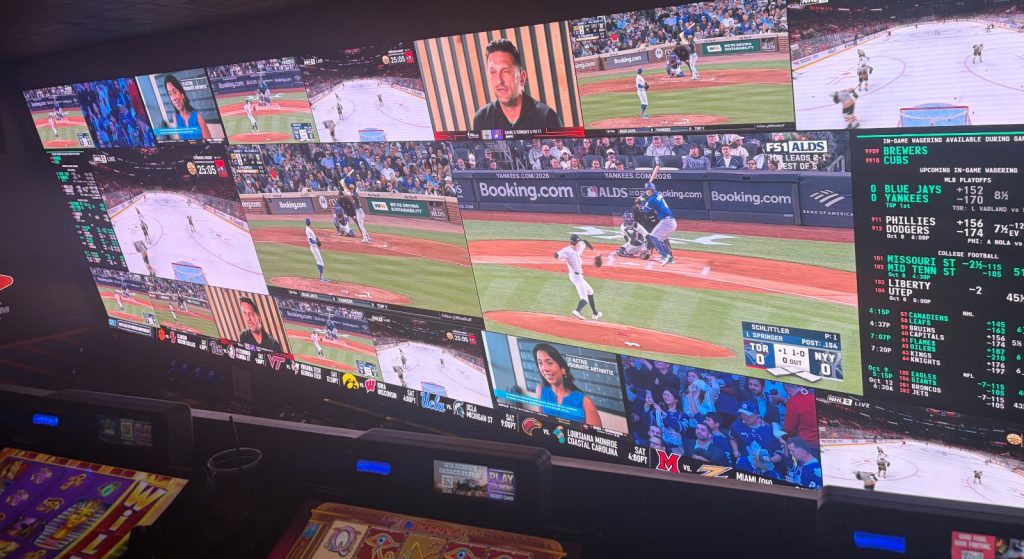
Circa’s three-story sportsbook has a video wall that is 40 feet high and 118 feet wide, making it the biggest in a sportsbook anywhere. Customers sitting in the stadium seating inside the sportsbook are enveloped in the experience. The sporstbook video wall can be seen from most locations on the casino floor. The video wall at Stadium Swim, which has six heated pools, is 41 feet high and 135 feet wide.
Benson said Stevens did his due diligence before beginning the Stadium Swim build. “He went to a different pool club every Sunday for a year and took notes,” Benson said. “He likes to be out there touching and feeling and getting customer feedback.”
Stevens studied every aspect of his pool-sportsbook vision. In particular, he realized that where the audio comes from a big screen is of paramount importance, so the Stadium Swim (and sportsbook) audio “comes at you right from the screen,” Stevens said. “Your mind is impacted by what your eyes see. I never, for sports, ever want to have audio coming at your side or your back. It changes the experience.”
From a visual perspective, Stevens couldn’t find the clarity he wanted, so he had the screens for the sportsbook and Stadium Swim custom made. Both are designed specifically for their venues, including taking into consideration outside temperature and how the sun would affect a screen.
“Sometimes, bigger screens can look sluggish, and sluggish is bad,” Stevens said. “We wanted to show real good clarity. If someone was throwing a long pass, or there’s a long drive, it has to be very, very clear.”
Circa isn’t Stevens’ first rodeo
Circa, which encompasses a full city block, opened in October 2020. But there were Las Vegas projects before that — in 2008, he bought the Las Vegas 51s baseball team and, with his brother, Greg, purchased the Golden Gate Hotel.
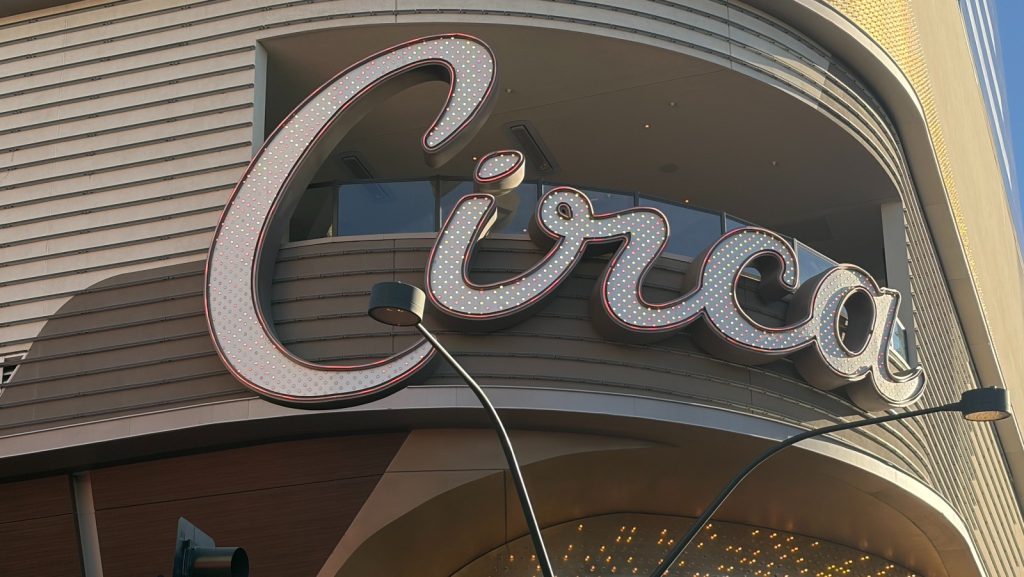
It took 18 months to get a gaming license, and the hotel purchase was made just ahead of the Great Recession. The financial disruption ultimately allowed Stevens to buy the bankrupt Riviera in 2010, and in 2011, in partnership with his brother, Fitzgerald’s, which he rebranded as the D Hotel & Casino. In 2013, he added the former Clark County Courthouse to his portfolio and turned it into the Downtown Las Vegas Events Center.
The idea for Circa began to take shape in 2015 when Stevens and his brother bought and leveled three properties to embark on the first new downtown casino project since 1980. Inside the sprawling property, which is adults only, Stevens wanted customers to have options. And sports. Lots of sports.
“The premise was to create an environment that people would want to come out to Las Vegas and see,” he said. “The sportsbook down here, the reason why I say it’s the world’s largest sportsbook is because what difference does it make if you’re staying at the Tahitian Village or at the Stratosphere or at Caesars Palace or Bellagio? If you’re a sports fan, who doesn’t want to come see the world’s largest sportsbook?”
In his younger years, Stevens said he was “buried in the basement at Aladdin or the Travelodge, but I was going to see the sportsbooks” at Las Vegas Hilton or Caesars, the two biggest at the time. Traditionally, the books were also “buried in the basement,” so Stevens set out to build a destination.
Circa Sportsbook wasn’t the first giant book in Las Vegas — that was the Westgate Superbook, which has a 220 foot x 18 foot video wall and seats 350. The location is a block off the Strip and was long the destination for sports bettors. But Circa upended that, and each now offers a different kind of immersive sports experience.
Ultimately, Stevens married his love of business with a love of sports to create what he considers the optimum experience, starting in the “Garage Mahal” and extending throughout the property. He could spend his days ensconced in his sports memorabilia-filled office, but instead he’s at meetings, on the casino floor, in the restaurants, and making sure that every bathroom has an attendant to keep it sparkling.
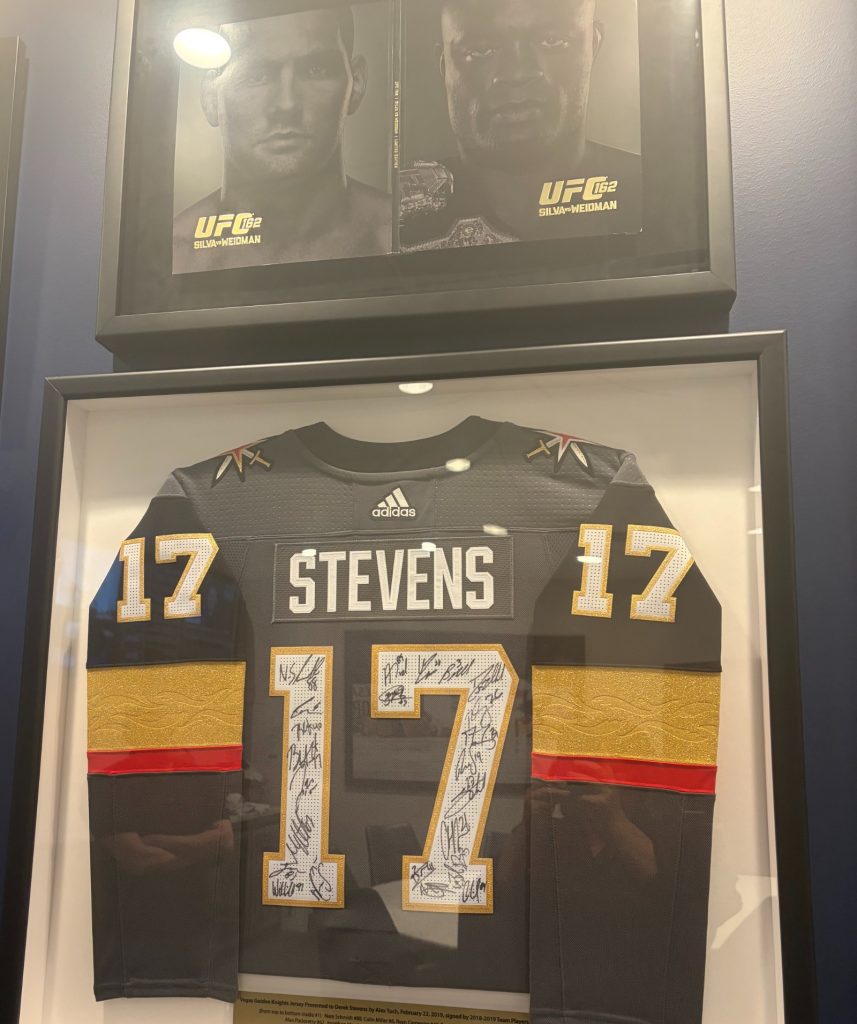
“He’s just somebody who is active, engaged, involved, whether that’s being in meetings, being on the floor, meeting media, tweeting out news. … There are so many facets of the business that he touches,” Benson said. “He’s on property every day, and he’s present, and I think that’s something that you don’t see from CEOs anymore. He’s like Benny Binion, or Steve Wynn, kind of old school. You’d be hard pressed to find anyone more involved.”
Back to Missouri
What does Circa’s entrance mean for Missouri? Circa won’t have a retail sportsbook in the first state to launch digital sports betting since March 2024, but it will have a platform that appeals to a different kind of bettor.
On the day that Stevens made his pitch, he wasn’t exactly sure how to play it. So he reached back to his Michigan roots and walked the parking lot ahead of the meeting.
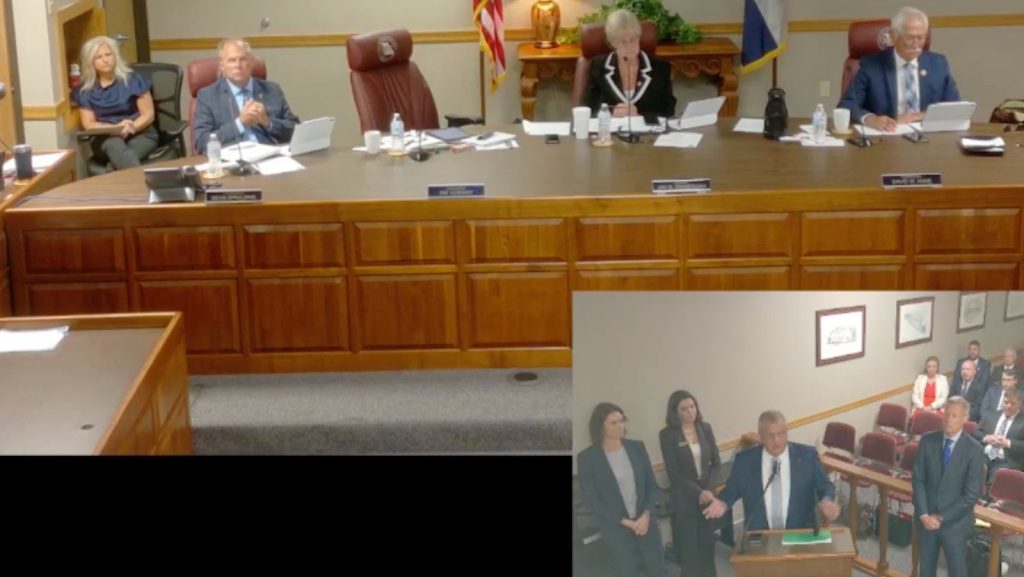
“We’re an all-American company,” Stevens said of Circa. “So, I kind of thought, when I walked through the parking lot, and I saw every commissioner come in driving a Ford F 150 or a General Motors [vehicle], and I thought, ‘OK, I mean, I’m from Detroit. So for me, I grew up looking at parking lots.’ … And I was like, ‘OK, I’m going down this all-American path.'”
When the presentation was over, Stevens wasn’t sure how it went. “I figured I gotta do everything I can to differentiate,” he said. “And I’m basically heaving a Hail Mary.”
Two days later, the MGC rewarded that risk.

